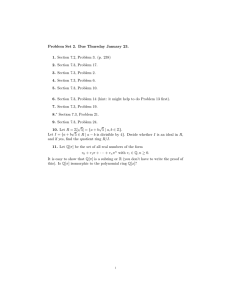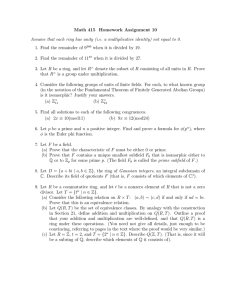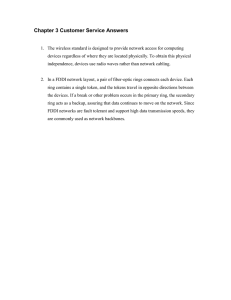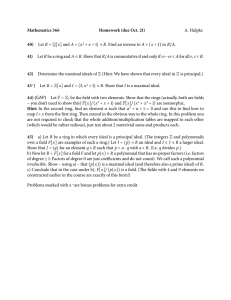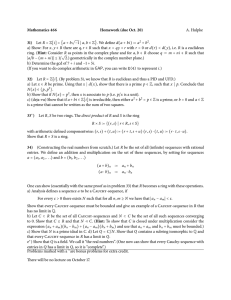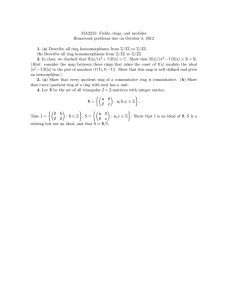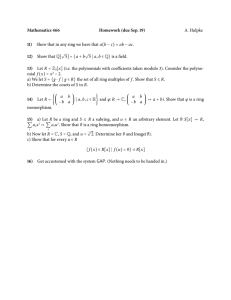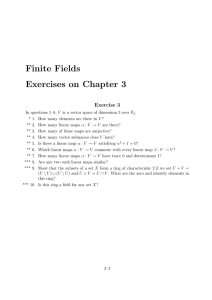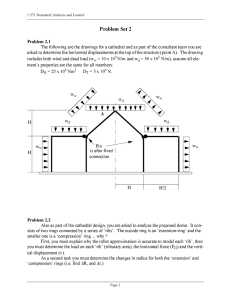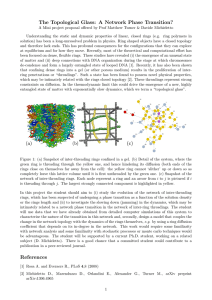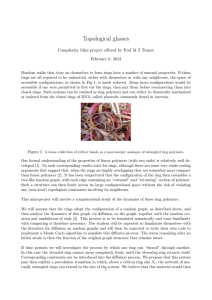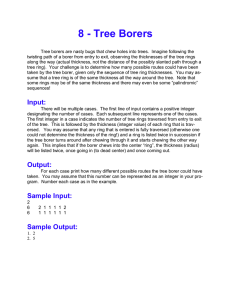Mathematics 466 Homework (due Oct. 3) 21) A. Hulpke
advertisement
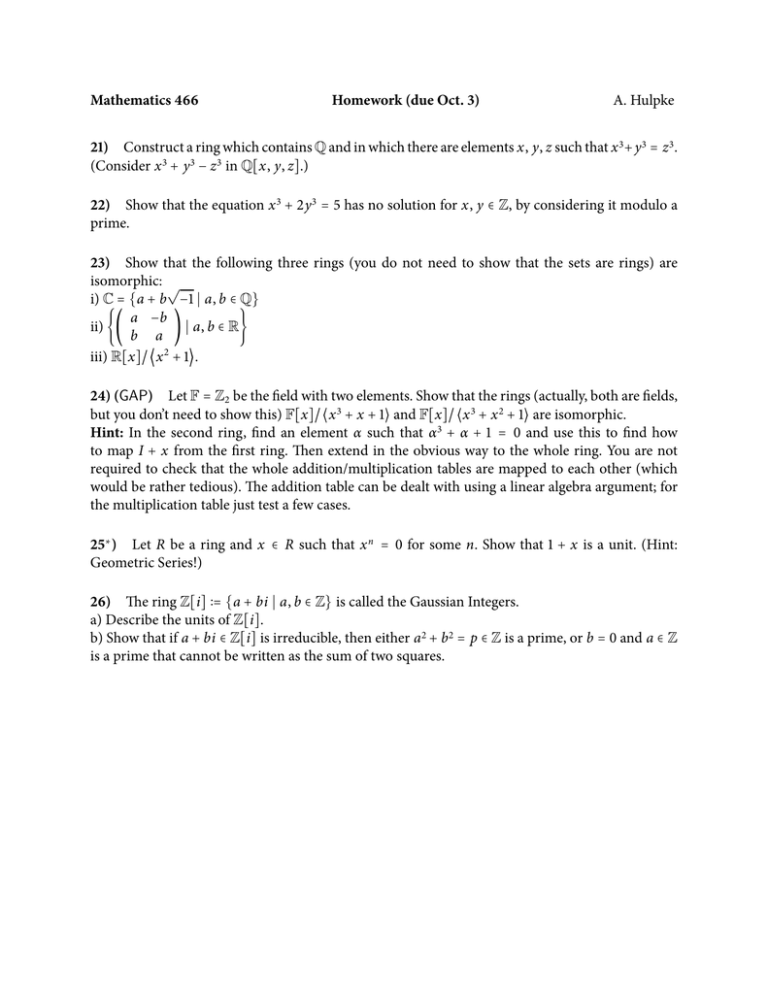
Mathematics 466
Homework (due Oct. 3)
A. Hulpke
21) Construct a ring which contains Q and in which there are elements x, y, z such that x 3 +y 3 = z 3 .
(Consider x 3 + y 3 − z 3 in Q[x, y, z].)
22) Show that the equation x 3 + 2y 3 = 5 has no solution for x, y ∈ Z, by considering it modulo a
prime.
23) Show that the following three rings (you do not need to show that the sets are rings) are
isomorphic: √
i) C = {a + b −1 ∣ a, b ∈ Q}
a −b
) ∣ a, b ∈ R}
ii) {(
b a
iii) R[x]/ ⟨x 2 + 1⟩.
24) (GAP) Let F = Z2 be the field with two elements. Show that the rings (actually, both are fields,
but you don’t need to show this) F[x]/ ⟨x 3 + x + 1⟩ and F[x]/ ⟨x 3 + x 2 + 1⟩ are isomorphic.
Hint: In the second ring, find an element α such that α 3 + α + 1 = 0 and use this to find how
to map I + x from the first ring. Then extend in the obvious way to the whole ring. You are not
required to check that the whole addition/multiplication tables are mapped to each other (which
would be rather tedious). The addition table can be dealt with using a linear algebra argument; for
the multiplication table just test a few cases.
25∗ ) Let R be a ring and x ∈ R such that x n = 0 for some n. Show that 1 + x is a unit. (Hint:
Geometric Series!)
26) The ring Z[i] ∶= {a + bi ∣ a, b ∈ Z} is called the Gaussian Integers.
a) Describe the units of Z[i].
b) Show that if a + bi ∈ Z[i] is irreducible, then either a 2 + b 2 = p ∈ Z is a prime, or b = 0 and a ∈ Z
is a prime that cannot be written as the sum of two squares.
